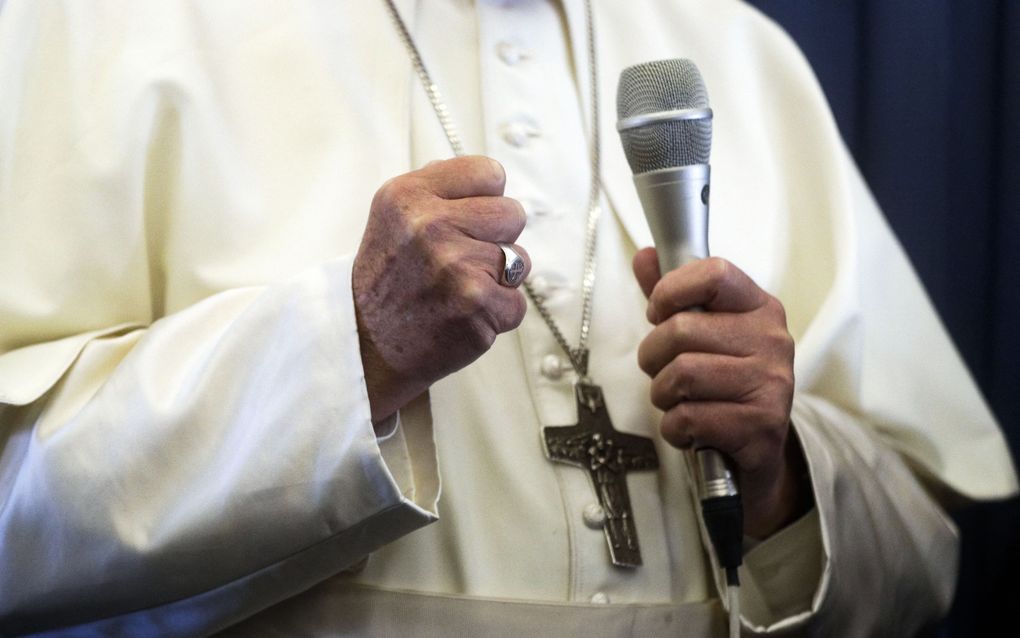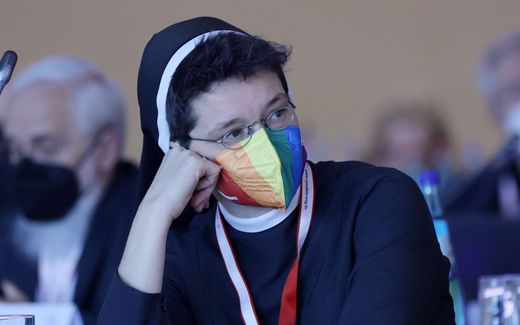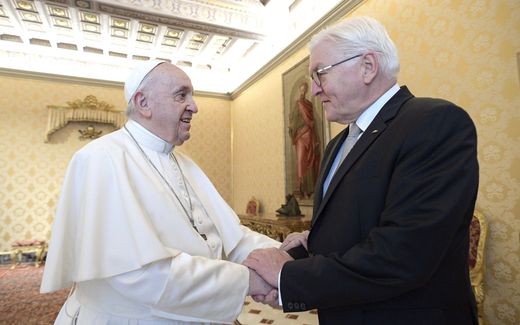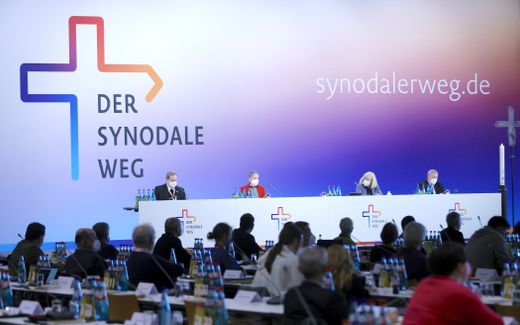Vatican is quiet but concerned about German reforms

Although the Germans have made far-reaching decisions, the Vatican has remained silent. Photo AFP, Gregorio Borgia
Central Europe
While the German Catholic Church voted overwhelmingly for far-reaching decisions, the Vatican remains quiet. Privately, however, Catholic clergy express their concern.
The Catholic Church wants to be more open to intersex and transgender people. The synodal assembly on the reform of the Catholic Church on Friday and Saturday in Frankfurt adopted a corresponding text with a large majority. Furthermore, they want to push the universal Church to ordain women to the sacramental diaconate.
In the days before, delegates voted overwhelmingly to adopt same-sex blessings, normalise lay preaching, and ask Rome to “reexamine” the discipline of priestly celibacy. This reports the Catholic news agency.
The Synodal Way recommends that same-sex relations be possible within the Catholic Church from 2026. The text, which was voted upon, was ultimately put to the vote in a weakened form, the Evangelische Zeitung reports. Originally it had contained the direct demand for the introduction of blessing celebrations. The text that has now been adopted contains only the recommendation.
The Catholic News Agency is critical towards the developments in Germany. “While the Germans pushed forward with these controversial measures, the assembly held back from crossing a line laid down by the Vatican concerning the establishing synodal councils at the national, diocesan, and parochial levels.”

Although the Catholic reform project made far-reaching decisions, not all had an immediate effect. For example, the German bishops cannot decide on introducing the women’s diaconate and the women’s priesthood; only the Vatican reserves the right to do that.
Adrift
The Vatican is concerned about German developments. La Croix reports that a cardinal privately expressed worries that the Germans had “gone a bit adrift” with the Synodal Path.
Still, the Vatican remains silent. The Dutch daily Trouw interviewed Paul van Geest, a professor of Church History at Tilburg University. He finds it telling that it remains quiet from the Vatican. "If nothing happens, I see that as a statement. In fact, it is an implicit construction of acquiescence. With that, people in the Vatican feel the sentiment in Belgium and Germany very well."
Last year, the Belgian bishops already announced that they would bless gay relationships. A year earlier, a statement from the Vatican said this was not the intention. But after the decision in Belgium, things remained remarkably quiet.
According to Van Geest, it remains the question of whether German bishops will take over the Synodal Path decision. Only then will it become official. “But if it gets through, it may be that the Vatican says: we don’t recognise that decision. Although with the Belgian decision, they have not done so. I expect they will be consistent. Because, of course, nobody wants a church split.”
Money
One reason for the Vatican to remain quiet could be money. “If Germany starts pushing for certain things, with all the money they have, that’s going to be a problem,” an anonymous prelate explained to La Croix. “They have both the money and their so-called theological superiority.”
Thanks to the 6.7 billion euros the Catholic Church in Germany earned in 2021 through the country’s religion tax, its bishops head the richest dioceses – by far – on the planet. The Vatican’s annual operating budget pales in comparison. It’s only around 300 million euros.

Beyond being a direct funding source to the Vatican, the German Church is viewed by Curia officials as an economic power capable of supporting the Christians of the East, La Croix reports. German Catholic organisations' logos are everywhere in the Middle East and Africa.
Temptation
Despite this, Vatican officials have been more or less explicit in criticising the Synodal Path. During his weekly audience in St. Peter’s Square on March 8, the Pope even made a thinly veiled reference to the German process, which he has been vigorously criticising in private. While giving a catechesis on evangelisation, he warned against “the temptation to follow easier pseudo-ecclesial paths” and “adopt the worldly logic of numbers and polls, to rely on the strength of our ideas, programmes, and structures”.
Related Articles







